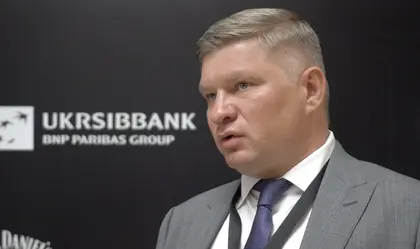War or not, business goes on for Ukrainian entrepreneurs.
“Obviously, now the main trend in Ukraine is miltech,” Pavlo Kartashov, former director of the Ukrainian Startup Fund (USF) who just finished his five-year tenure at the end of April, said.
JOIN US ON TELEGRAM
Follow our coverage of the war on the @Kyivpost_official.
Founded by the Ministry of Finance in 2018 and brought under the management of the Ministry of Digital Transformation in 2023, the USF is a state-owned institution that helps local startups attract funds during the early stages of the launch of their projects – through grants and expertise from both Ukrainian and Western sources.
While Ukraine has been a breadbasket of numerous important startups over the last decade, the full-scale invasion has presented funding challenges for new businesses.
“Obviously, investments are not very active, because if you take any [venture capitals], any investor from abroad, obviously, they understand a niche circumstance of startups. And obviously, sometimes, it’s connected with a higher risk [than] usual,” Kartashov told Kyiv Post at the Tech Ecosystem Summit on May 3, an event the USF co-organized.
Despite the challenges, he said the ecosystem has been able to adjust accordingly – “balancing on a daily basis between war and business [as] usual,” he said.
In addition, Kartashov said local startups are receiving support and expertise not only from local experts but also from abroad.

Ukraine’s Top Cities for Digital Service Innovations
“As you are probably aware of, we have a lot of different grant programs which were launched recently. We have a huge project by the European Union, €20 million made available by the European Innovation Council.
“We’ve got the support from the Western NIS [Enterprise] Fund. They provided us [with] $2.5 million for startups. And we have a pre-commitment to extend this program at [a] later stage if [the] first stage is finished successfully,” he added.
“We are doing our best to attract more money, more expertise, and to make it accessible to startups and newborn companies.”
Regarding the trend among startups, Kartashov said that the main trend in Ukraine is now military technology – with a special fast track from the USF – but there are also other ongoing developments.
He said Ukraine is now running a project for deep tech – startups focusing on specialized engineering and scientific development – with other major areas of focus among startups being artificial intelligence (AI), cybersecurity, and big data, among other key areas.
“I wouldn’t like to point to any concrete industry, but obviously these industries [...] have the biggest focus nowadays,” said Kartashov.
Regarding his tenure as USF’s director, Kartashov said the team started with only five people, but the fund has since grown mature and passed multiple audits.
“We launched the project in just three months. I remember the launch – it was August 2019, and we started to accept the [first] applications already in December,” said Kartashov.
“As for now, I can say that we have [a] very strong institutional capacity. We passed many audits: each year we passed the international companies’ audits. In addition, we passed several state audits.
“That means all our structure, all our internal business process [...] they are arranged in the proper way,” he added, joking that being a state-owned institution, it faces bureaucracy every day but has prospered, nonetheless.
Kartashov said that though his contract with the USF is over, he will stay within the ecosystem and contribute to different ongoing projects – but whether he’ll stay within the state sector remains uncertain.
“I like this sphere – innovative technologies – and I did a lot. And I believe we are going to make even more in the near future,” he said.
You can also highlight the text and press Ctrl + Enter






